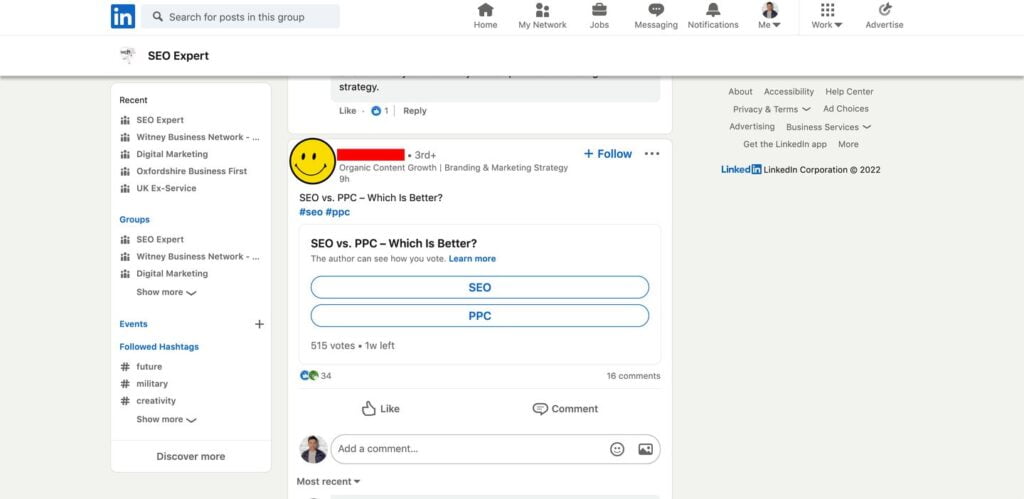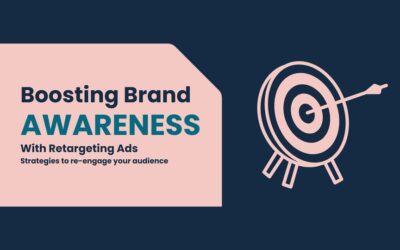A question we often see is “Which is best? PPC or SEO”. Even amongst other “experts” in the Digital marketing industry, it’s common to believe one is better than the other or that, given the choice, you should use one over the other.

So we put this post together to cover the basics and give you an understanding of why the question of “which is best” is the wrong way to look at things when it comes to your overall digital marketing strategy.
So let’s go…
The Difference between SEO and PPC Advertising
Before we get started, it’s important to understand what SEO & PPC are and there key differences.
What is SEO?
SEO or, Search Engine Optimisation, according to google is “often about making small modifications to parts of your website. When viewed individually, these changes might seem like incremental improvements, but when combined with other optimizations, they could have a noticeable impact on your site’s user experience and performance in organic search results.”
SEO can be broken down into two main categories, these being on-page or technical SEO (ie; work done on your website) & off page SEO (work done off of your website).
The main aim for SEO is to rank highly on the Search Engine Results Page (SERPS) in order to capitalize on the amount of people, searching for that specific term. If more people land on your website then, providing your website is converting well, you can expect more conversions.
As we like to put it, your website is like a traditional store, SEO is one of the methods you go about getting people, who are interested in your niche, to visit your store.
What Is PPC?
PPC or Pay-Per-Click is another Digital Marketing tool which can be added to your arsenal in order to drive traffic to your website.
You’ve no doubt come across businesses utilising PPC whilst searching for various things on the web. They’re usually depicted with either “Sponsored” or “Ad” as you can see in the example given below.

Businesses use PPC to drive very targeted traffic to their website in order to allow the website/landing page to do it’s job – that being to convert the visitor be it a product sale, services enquiry or something else such as an email sign up.
It’s worth bearing in mind that there are various platforms in which you can run your PPC campaign, the largest ones being Google & Facebook Ads.
A KEY difference between SEO & PPC is, as the name suggests, with PPC you Pay every time somebody clicks on your Ad – whereas with SEO, you don’t.
The Pros and Cons of SEO and PPC Advertising
So now that we’ve covered what SEO and PPC are, it’s time to get into the advantages and disadvantages of each.
Improving Organic Traffic With SEO
Pros:
Pro #1 – Cost Per Click: Traffic received from any organic search is FREE – to an extent. In order to attain a decent ranking which is generating you traffic you will have to either spend time optimising your website or money in outsourcing this. That said, once you’re up there, there isn’t a charge for anybody clicking through to your website.
Pro #2 – Return on Investment (ROI): Organic search traffic is able to provide a great ROI compared to other forms of paid marketing – Done right, it can provide a better ROI than PPC. The reason for this fairly simple… SEO increases the chances of your website being found. If PPC is fishing with a line then SEO (after some time) is fishing with a net.
Pro #3 – SEO Provides Ongoing Value: Good quality SEO will usually require a significant investment be it in time spent learning and applying or money spent outsourcing. This said, you will tend to reap the rewards over time and, the more consistent you are, the more reach your website or articles will have. Your reach can continue to grow with a similar time/cost budget whereas with PPC, in order to reach more prospects, you’d need to address the budget.
Pro #4 – SEO Isn’t Dependant On A Consistent Budget: Compared to PPC at least… If you’ve ever ran a PPC campaign, you’d know that as soon as you stop spending, the traffic stops. This isn’t the case with SEO, should the budget dry up, as the work has been done “upfront” you’ll likely still reap those rewards.
Cons:
Con #1 – SEO Takes Time: Although there can be some instances where optimising your website will result in some quick “easy wins”, SEO in general takes time. This isn’t necessarily a problem unless you’re investing in SEO with an expectation to see results/traffic overnight. If this is your expectation, you may be better off looking at PPC as an alternative or better yet commit to PPC to supplement your SEO plan.
Con #2 – The Cost Of SEO: Like most things, SEO has a cost, be it time or money. As the results come later (as established above), you’re not necessarily going to see a return on your investment for a number of months sometimes years. With this in mind, committing to SEO with the wrong understanding of when you can expect positive results can be a costly mistake.
Let’s explain… if you’ve budgeted “X” amount for SEO with the expectation to be ranking #1, for your chosen keyword, in say 3 months where in reality it take 6 months to rank. At month 3 you might find yourself in a position where you have to ask the question, “do we continue to commit or do we invest elsewhere?” You may have been better off looking at other options in the first place which better aligned with your goal.

Con #3 – SEO Is Always Changing: As time moves forward, search engines are constantly changing their algorithm in order to better help the user find what they’re searching for. What that means is that you always need to stay on top of the latest updates/changes. If you’re handling SEO in house, then it’s more time which needs to be budgeted in order to stay on top of the latest best practices.
Precision Targeted Digital Marketing With PPC
Pros:
Pro #1 – Extremely Targeted: With PPC advertisements such as Google ads or Facebook Ads, your campaign can target very specific demographics. Want to target customers in your city only? No problem. Only offer your products to those over 40? No issue. Compare this to SEO, where you may generate traffic which isn’t necessarily in your target demographic, you know that every penny spent is as targeted as possible with PPC.
Pro #2 – Quick Results With PPC: PPC advertisements can quickly boost conversions. Once the campaign has been set up and is live, traffic is immediate. To that end, a good converting website can start generating enquiries or sales over night with PPC. It’s worth mentioning here, that although this is the case, it’s worth constantly testing and adjusting your campaign along with A/B testing any landing pages to ensure you’re getting the best bang for your buck.
Pro #3 – PPC Is Measurable: Properly configured, you can easily measure the amount spent with a PPC campaign and see the conversions which have been generated. Provided you know your margins, you can tailor the campaign in order to ensure that you are making an return on your investment.
Cons:
Con #1 – Success/ROI Is Conversion Rate Dependant: Yes, with PPC you can generate traffic to your website fast. But as we touched on earlier, if your website or landing page isn’t set up to convert then you may not see enough conversions to justify the spend. This is why it’s paramount that before going ahead with PPC or SEO, that your website is up to scratch – think of this as the foundations to build your digital marketing efforts on.
Con #2 – PPC Can Be Expensive: Following on from Conversion Rate Dependency, if your website isn’t converting, you are still paying for the traffic. In addition, if you are in a competitive industry, you may find yourself paying more per click than a business that isn’t. Touching on our next Con slightly, if your PPC campaign isn’t configured properly, you can easily blow through £thousands in a short space of time with no results – We’ve seen this happen!
Con #3 – PPC Requires Skill: Setting up and managing a PPC Campaign is an art as well as a science. You need to be able to understand and put yourself in the position of your visitors however you also need to be able to analyse the data in order for you to “steer the ship” and ensure you are constantly working towards improving your ROI
Which Is Best? PPC Or SEO Summary
In summary, we’ve discussed what PPC and SEO are, along with the Pros and Cons of each. By now, you should have an understanding that they are two very different forms of Digital Marketing options you have at your disposal.
You’ve hopefully established that neither are a “one hat fits all” option and that whichever option you decide to move forward with will depend on a number of variables such as;
- What your Goal is
- How fast you want to achieve results
- What you want to budget
To name a few.
As such, you can now see why “Which is best? PPC or SEO”, like most things in business, isn’t a straight forward question.
If you find yourself in need of an opinion on your Digital Marketing Options, feel free to get in touch with us for an informal and transparent chat.





0 Comments